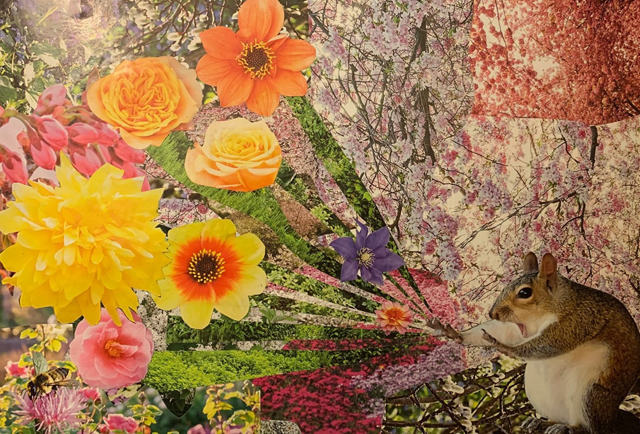The Use of Collage in Autoethnography
DOI:
https://doi.org/10.31273/eirj.v10i1.1218Keywords:
collage, autoethnography, researcher identity, visual research methodsAbstract
In this critical reflection, I will explore my use of collage in critical autoethnography. This reflection was prompted by my participation in a seminar that took place in June 2022, entitled ‘Being a Researcher’. This seminar was co-organised by the Non-Traditional Research Methods Network (NTRM), of which I am one of three founder members, and the Society for Research in Higher Education (SRHE). I reflect upon two properties of collage. I suggest that embodiment in the process of making collage, enables researchers to draw upon embodied and affective ways of understanding the world. Furthermore, I propose that the constructive and deconstructive properties of collage enable a critical engagement with one’s personal narratives in autoethnography. I conclude that the literally messy aspects of collage pose questions about tidy and messy ways of knowing, and in so doing raise questions what it means to be a researcher in practice.
Exchanges Discourse Podcast
Downloads

Downloads
Published
Issue
Section
License
Copyright (c) 2022 Harriet Richmond

This work is licensed under a Creative Commons Attribution 4.0 International License.
Authors who publish with this journal agree to the following terms:
Authors retain copyright and grant the journal right of first publication with the work simultaneously licensed under a Creative Commons Attribution License (CC-BY), which permits use and redistribution of the work provided that the original author and source are credited, a link to the license is included, and an indication of changes which were made. Third-party users may not apply legal terms or technological measures to the published article which legally restrict others from doing anything the license permits.
If accepted for publication authors’ work will be made open access and distributed under a Creative Commons Attribution (CC-BY) license unless previously agreed with Exchanges’ Editor-in-Chief prior to submission.
Authors are able to enter into separate, additional contractual arrangements for the non-exclusive distribution of the journal's published version of the work (e.g., post it to an institutional repository or publish it in a book), with an acknowledgement of its initial publication in this journal.
Authors are permitted and encouraged to post their work online (e.g., in institutional repositories or on their website) prior to and during the submission process, as it can lead to productive exchanges, as well as earlier and greater citation of published work. (see: The Effect of Open Access)
